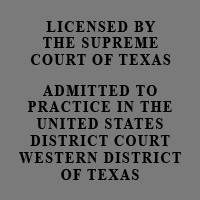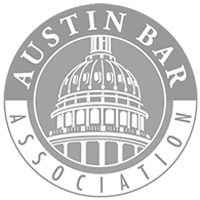Defective Electronic Components Can Be The Basis For Large Defense Contractor Whistleblower Reward Lawsuits by Defective Electronic Component Whistleblower Reward Lawyer Jason S. Coomer
Defective electronic components used in missile defense systems, military aircraft, weapons, and other military equipment can play our troops and security in jeopardy and be the basis of large defense contractor whistleblower reward lawsuits. For this reason, the United State government is offering large financial rewards to professionals who properly expose electronic component fraud and false certification of electronic components.
If you are aware of defense contractor who is committing electronic component fraud or false certification of electronic components, please feel free to contact Electronic Component Fraud and False Certification Whistleblower Reward Lawyer Jason Coomer, for a free and confidential online review of your potential Whistleblower Reward Lawsuit. Feel free to also use our online submission form. Please make sure you contact us through a secure e-mail address and/or telephone line.
Over a Million Fake or Defective Electronic Components Have Been Used by Government Contractors In United States Aircraft Many of these Fake Parts May Have Come from China or other Parts of Asia
In 2011, the United States Senate Armed Services Committee announced that it had uncovered 1,800 cases in which the Pentagon had been sold defective electronics many of which may be counterfeit. In total, the committee said it had found more than a million defective electronic parts had made their way into military aircraft. Many of these defective electronic components had come from defective supply chains and fraudulent sub contractors. These defective electronic components can create catastrophic problems when used in military aircraft, weapons, missile defense systems, surveillance systems, and other security systems.
Manhattan U.S.
Attorney Announces Settlement With Department Of Defense
Weapons Parts Supplier For Procurement Fraud
Preet Bharara, the United States Attorney for the
Southern District of New York, announced today that the
United States has filed and simultaneously settled a
civil fraud lawsuit against Electrical & Electronic
Controls, Inc. (“E&E”), a small distributor of
electrical components, for knowingly supplying the
United States Department of Defense (“DoD”) with
non-conforming electrical and other parts critical to
weapons performance and operation, that later turned out
to be defective. The Complaint was filed on March 21,
2013 in Manhattan federal court and the settlement was
approved Friday by U.S. District Court Judge William H.
Pauley, III.
Manhattan U.S. Attorney Preet Bharara said: “As E&E
admitted, they provided less expensive unapproved parts
to our Department of Defense, conduct that jeopardized
both the flawless functioning of our weapons system and
the safety of those who operate it. This Office is
committed to ensuring that the U.S. Government gets what
it pays for, and pursues those who would mislead it.”
According to the allegations contained in the Complaint:
From 2004 through 2007, E&E bid on and entered into
fourteen contracts with the DoD. Under those contracts,
E&E was required to supply parts from specific
manufacturers that had been vetted and approved by the
DoD for the quality of their products. Instead, E&E
knowingly supplied less expensive parts from unapproved
sources to the DoD. Twelve of the 14 contracts involved
Critical Application Items, i.e., items that are
essential to weapon system performance or operation, or
the safety of operating personnel. In addition, many of
the substituted parts turned out to be defective and
unusable, costing the DoD hundreds of thousands of
dollars.
As part of the settlement, E&E admitted, acknowledged,
and accepted responsibility for repeatedly substituting
less expensive parts from unapproved sources, and
misrepresenting the source of the parts it then supplied
to DoD. E&E must also pay $250,000 to the United States
under the False Claims Act.
Mr. Bharara praised the investigative work of the DoD in
this case.
Assistant U.S. Attorney Jaimie L. Nawaday is in charge
of the case.
Coos Bay Company, Its
Owner and Six Employees Indicted for Fraud on Defense
Contracts
EUGENE, Ore. — A Coos Bay business, its owner, and six
employees were arraigned in federal court today on an
indictment returned by a federal grand jury on December
14, 2011. The indictment alleges that Kustom Products,
Inc. (KPI), a vehicle parts supply business located in
Coos Bay, Oregon, its owner, and six employees committed
fraud on contracts with the United States Department of
Defense (DoD) valued at over $7.5 million. The indicted
owner is Harold Ray Bettencourt II. The indicted
employees are Bettencourt’s former wife (Kathy Sue
Bettencourt), three of his sons (Harold Ray Bettencourt
III [Bo], Nicholas Ryan Bettencourt and Peter Tracy
Bettencourt), his office manager (Margo Antonette
Densmore), and his purchasing agent (Joshua Lee Kemp).
The indictment alleges that KPI, Bettencourt, and the
others committed wire fraud, conspiracy to commit wire
fraud, fraud involving aircraft parts, money laundering,
and conspiracy to commit money laundering. It also
alleges that all proceeds traceable to the fraud are to
be forfeited including $365,503.26 in funds from 20 bank
accounts, eight vehicles, one boat, two boat trailers,
two jet skis, and three all-terrain vehicles.
Harold Ray Bettencourt II, 57, lives in Coos Bay,
Oregon; Kathy Sue Bettencourt, 54, resides in Myrtle
Point, Oregon; Bo Bettencourt, 31, Nicholas Ryan
Bettencourt, 29, and Peter Tracy Bettencourt, 25, all
reside in North Bend, Oregon. Margo Antonette Densmore,
40, and Joshua Lee Kemp, 37, are from Coos Bay, Oregon.
The indictment alleges that KPI and a predecessor
business, Southern Oregon Sterling Parts and Service
(SOS), provided nonconforming, defective and counterfeit
products to the DoD for the purpose of increasing their
profit margin. It alleges that KPI and SOS committed
fraud on at least 392 contracts resulting in payments of
$7,523,406.59. The indictment alleges that the various
nonconforming and counterfeit products where provided to
the DoD from KPI through DoD supply centers in Columbus,
Ohio; Philadelphia, Pennsylvania; and Richmond,
Virginia. Some of the products were critical application
items, defined as items essential to weapons systems
performance or operation, or the preservation of life or
safety of operational personnel. Examples were defective
aviation locknuts for the Kiowa helicopter. These
locknuts were used on the main rotor assembly of the
Kiowa helicopter and were flight critical because the
failure of the main rotary assembly could be
catastrophic, resulting in death or serious injury to
military personnel. Other critical application items
included clamp loops used in C-5 military transport
plane engines and other aircraft.
The indictment alleges that Harold Bettencourt II
facilitated the scheme by directing other defendants to
carry out actions on behalf of KPI and its predecessor
SOS, such as making false representations in contracts,
providing non-conforming and counterfeit products, and
providing false documents to the DoD. The indictment
includes a number of examples of how the fraud was
committed, and explains how some products were
counterfeited in Mexico or obtained in China, even
though KPI represented them to be from DoD-approved
manufacturers in the United States. The DoD-approved
manufacturers whose parts were counterfeited or
otherwise misrepresented to be genuine include
Caterpillar, Inc., BAE Systems Land and Armaments,
Freightliner, Pacific Industrial Components, Inc., and
SPS Technologies. The indictment also alleges that KPI
and its predecessor SOS counterfeited heat treatment
certifications of Timber Products Inspection, Inc., on
wood packaging materials in order to decrease expenses
and increase profits.
The indictment charges all defendants with wire fraud
and conspiracy to commit wire fraud. The maximum
statutory penalty for wire fraud and conspiracy to
commit wire fraud is a 20 year term of imprisonment and
a $250,000.00 fine, followed by a three year term of
supervised release. It also charges Harold Ray
Bettencourt II, Nicholas Ryan Bettencourt and Joshua Lee
Kemp with fraud involving aircraft parts. The maximum
statutory penalty for fraud involving aircraft parts is
a 10 year prison term and $250,000.00 fine, followed by
a three year term of supervised release. The indictment
also charges Harold Ray Bettencourt II, Kathy Sue
Bettencourt, Bo Bettencourt, Nicholas Ryan Bettencourt,
Margo Antonette Densmore and KPI with money laundering
and conspiracy to commit money laundering. The maximum
statutory penalty for money laundering is a 10 year
prison term and $250,000.00 fine, followed by a three
year term of supervised release.
The matter is scheduled for trial before United States
District Judge Michael R. Hogan on June 27, 2012. All
defendants were released on conditions pending trial.
Amanda Marshall, United States Attorney for the District
of Oregon, emphasized the serious nature of the charges:
“The allegation that military personnel were placed in
harm’s way for the sole purpose of financial profit
warrants vigorous investigation and prosecution.”
A criminal indictment is only an allegation and not
evidence of guilt. All defendants are presumed to be
innocent unless and until proven guilty.
The case is being investigated by the Department of
Defense/Office of Inspector General/Defense Criminal
Investigative Service, the Army Criminal Investigative
Division Major Procurement Fraud Unit, the Federal
Bureau of Investigation, the Internal Revenue Service
Criminal Investigation Division, the Social Security
Administration/Office of Inspector General, and
Immigration and Customs Enforcement. The case is being
prosecuted by Assistant U. S. Attorney Sean B. Hoar.
Qui Tam Lawsuits and Defense Contractor Fraud Lawsuits
In 1986 as a result of increased government contractor fraud, Congress amended the False Claims Act in order to make it easier for whistleblowers to file claims against fraudulent corporations and individuals. The act also help protect the Whistleblower or Relator from retaliation.
The 1986 Amendment defines a "claim" as:
"...any request or demand which is made to a contractor, grantee, or other recipient if the United States Government provides any portion of the money or property which is requested or demanded, or if the government will reimburse such contractor, grantee, or other recipient for any portion of the money or property which is requested or demanded."
The whistleblower's share of recovery is a maximum of 30 percent and the government's prior knowledge of fraud now does not necessarily bar a whistleblower from collecting lost revenue. If the government took over the lawsuit, the relator can "continue as a party to the action." The defendant is also required to pay for the relator's attorney fees. The whistleblower is also protected from retaliatory actions by his or her employer. As a result or the amendment, qui tam lawsuits increased dramatically. Though the amendment was first made fore corrupt defense contractors, the amendment has uncovered billions of dollars in health care fraud.
Anyone who defrauds the government out of revenue can be held accountable under the False Claims Act. Common defendants include defense contractors, health care providers, other government contractors & subcontractors, state and local government agencies, and private universities. Whistleblowers often include current and former employees of the defrauding company, competitors of government contractors and public interest groups.
The False Claims Act was enacted to encourage private citizens to assist the government in the fight against fraud. Often the whistleblower faces an uphill battle as large, powerful corporations or individuals are usually named as defendants. An experienced attorney in qui tam claims may help you gain a percentage of stolen government funds.
Quit Tam Claims, False Claims Act, and Defense Contractor Fraud Lawsuits
There are several types of Qui Tam claims covered under the False Claims Act:
-
Mischarging or overcharging for goods or services.
-
Improper price data and the request for payment for services never provided.
-
Holding government property for fraudulent purposes.
-
Avoiding payment of a debt to the government because of illegal reasons.
-
Knowingly providing the government with defective or dangerous products that were falsely certified.
-
Falsely certifying information for the entitlement of benefits.
-
Having any false claim paid by the government.
The mischarging case is the most common type of qui tam case filed. Mischarging cases generally involve filing false claims for goods or services that were not provided or delivered. A common mischarging scenario is employee labor charged to a government contract not worked on. Other common mischarging schemes are claims made to the Government for medical services not rendered or for services performed by an attending physician when the service was actually performed by a nurse or other provider that should have been billed at a lower rate.
Another type of case is the false negotiation or defective pricing case that involves the submission of false cost and pricing data to the Government. This scheme, which takes on many forms, involves the submission of false costs or pricing data to the Government during the negotiation of a contract that subsequently results in an inflated contract price.
Other common types of cases involve product and service substitution and false certification of entitlement for benefits. Examples of product and service substitution are falsely certifying that a product meets specifications, false testing schemes such as falsely certifying that reliability testing was conducted and providing an inferior service or product. Examples of false certification of entitlement cases are falsely certifying information for FHA mortgage guarantees and price supports.
Potential heroes that blow the whistle on government fraud and corruption include employees, former employees, high-level executives, sub contractors, general contractors, and people working with major defense contractors, telecommunications companies, and large health care organizations.
Qui Tam Lawsuit Lawyers and Defense Contractor Fraud Lawsuit Lawyers
If you are aware of a defense contractor, health care provider, financial institute, or other large contractor or subcontractor that is defrauding the United States Government out of millions or billions of dollars, contact Qui Tam Lawsuit Lawyer Jason Coomer. As a Texas Defense Contractor Lawsuit Lawyer, he works with other powerful Qui Tam Lawsuit Lawyers that handle large governmental contractor fraud cases. He works with San Antonio Qui Tam Lawyers, Dallas Qui Tam Lawyers, Houston Qui Tam Lawyers, and other Texas Qui Tam Lawyers as well as with Qui Tam Lawyers throughout the nation to blow the whistle on fraud that hurts the United States and our armed forces.
Feel Free to Contact Us with any Questions
Associations




